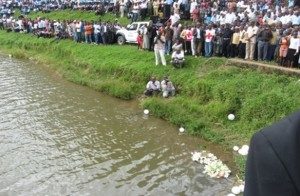
An estimated 20,000 children were born as a result of rape committed against Tutsi women during the 1994 genocide.
Josiane was herself born as a result of rape. “I was conceived when three men raped my mom” she says. When I met her last week she said, “I have been told by our neighbors that I am a product of the killers.”
Josiane’s story is far from isolated. But many accounts of rape leading to the birth of a child remain undisclosed. This is due to some mothers either wanting to protect themselves and their children, or because of the stigma involved of disclosing the circumstance of birth, and the fear of rejection by the mothers who choose to do so.
As such, many children are not told the circumstances leading to their birth. To ensure this new generation is provided with an education and a positive future, Foundation Rwanda and Survivors Fund (SURF) are providing for the educational needs of 830 children born as a result of rape committed during the 1994 genocide. In addition to this, the joint programme provides counseling through a community support initiative to provide seminars on matters of disclosure.
Some of the children born of rape will inevitably grow up never knowing the true nature of their conception. Women that are uncomfortable acknowledging their rape, and subsequent child, will at times invent a father, a family, and a past through which to fill the gaps in their child’s life. Within this lies the troubled question of which is greater: the right to a father, or the right to the truth?
Mukasekuru says: “To tell the child the truth would be to add yet another injustice to the one already done to it.” Instead, what should she tell her child? Should she lie and say that her father had died a heroic death while trying to liberate his country. This child has a right to a father who is a hero. She would find it hard to invent and describe in detail this father’s face, voice or habits. Hardest of all perhaps, would be to think up a love story for this non-existent man.
Are these children Tutsi, like their mothers, or Hutu, like their fathers? Are they “the enemy within”, as the men who conceived them intended them to be, or are these children the new generation? And if so, what does it mean to be a child of rape? What cultural legacy should children born of the 1994 genocide inherit in order to ensure that the violent past does not revisit the future?
These and other questions are being asked by the women who endured rape and became pregnant during the genocide. Today, they are mothers to a new generation of Rwandan citizens, and need advice and psychological support to help them deal with the upbringing of their children born of rape. Some of these questions are being answered by way of a community counseling initiative which deals with the subjects of disclosure, parenting and identity. But many other issues are still to be addressed and understood.
The one truth that all these mothers can share with their sons and daughters is that the hate from which their life emerged can be transformed into love.

